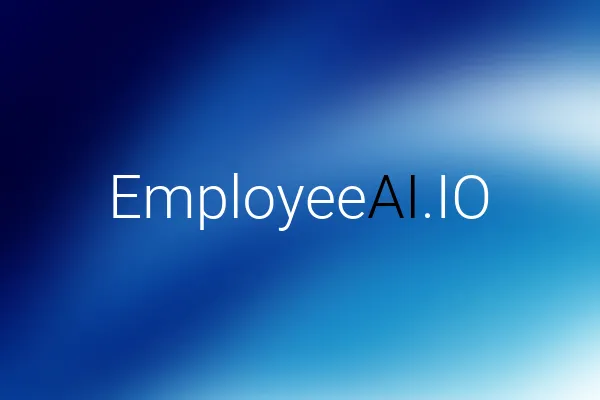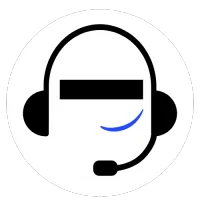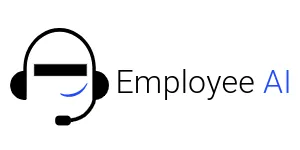AI Employees: The Future of Work
Learn More all About It !
Blogs

AI Employee vs. Human Employee: A Comprehensive Comparison
The rise of artificial intelligence (AI) is redefining the workplace, and businesses are now faced with a compelling question: should they hire AI Employees, human employees, or both? While AI Employees bring unparalleled efficiency and scalability, human employees provide creativity, emotional intelligence, and adaptability.
In this blog, we’ll dive deep into the strengths of both and help you determine how to create the perfect balance for your business.
What Is an AI Employee?
An AI Employee is a software-driven system designed to perform tasks traditionally handled by humans, such as customer service, appointment scheduling, and lead management. Powered by technologies like natural language processing (NLP) and machine learning, AI Employees work 24/7 with precision and scalability.
The Comparison: Key Factors to Consider
1. Availability
AI Employee:
Works around the clock without breaks, holidays, or downtime. Always available to respond to customer needs instantly.Human Employee:
Limited to specific working hours and may require breaks, vacations, and sick days.
Winner: AI Employee for consistent, 24/7 coverage.
2. Cost
AI Employee:
Requires an upfront investment and ongoing subscription costs, but eliminates expenses like salaries, benefits, and training.Human Employee:
Involves ongoing expenses, including wages, benefits, and administrative overhead.
Winner: AI Employee for cost-efficiency over time.
3. Scalability
AI Employee:
Easily handles increased workloads without additional hiring or training.Human Employee:
Scaling requires recruitment, onboarding, and training, which can be time-consuming and costly.
Winner: AI Employee for effortless scalability.
4. Customer Interaction Quality
AI Employee:
Provides instant, consistent responses but may lack deep emotional intelligence. Advanced systems can simulate human-like interactions effectively.Human Employee:
Excels at empathy, understanding complex emotions, and building strong personal relationships.
Winner: Human Employee for emotional connections; AI Employee for consistency.
5. Adaptability
AI Employee:
Learns and improves over time using machine learning but is limited to predefined parameters.Human Employee:
Highly adaptable and capable of solving unique or unexpected challenges creatively.
Winner: Human Employee for flexibility and out-of-the-box thinking.
6. Efficiency
AI Employee:
Automates repetitive tasks, reducing human error and increasing productivity.Human Employee:
May face fatigue or burnout, leading to occasional errors and slower task completion.
Winner: AI Employee for repetitive, time-sensitive tasks.
The Ideal Solution: Collaboration Between AI and Humans
While both AI and human employees have unique strengths, the best results often come from collaboration. By integrating AI Employees into your workforce, you can:
Automate time-consuming tasks.
Free up human employees for strategic and creative work.
Provide 24/7 support while maintaining a human touch where it matters most.
This hybrid approach allows businesses to operate more efficiently, scale seamlessly, and meet customer demands with precision and care.
Real-Life Use Cases of AI Employees
Real Estate: AI Employees handle property inquiries and schedule viewings, while agents focus on closing deals.
E-commerce: AI Employees provide 24/7 support for order tracking and FAQs, allowing human teams to work on marketing strategies.
Healthcare: AI Employees manage patient scheduling, freeing up staff to deliver hands-on care.
Why Your Business Needs AI Employees
In today’s competitive landscape, businesses can’t afford to lose leads or provide subpar customer experiences. AI Employees complement human teams by ensuring:
Faster response times.
Reduced operational costs.
Enhanced customer satisfaction.
How to Start with AI Employees
At Employee AI, we specialize in delivering scalable, AI-powered solutions tailored to your business needs. With Employee AI, you don’t have to choose between humans and AI—you can have the best of both worlds.
Visit EmployeeAI.IO to experience the Future of Work, One AI Employee at a Time.
Wanna Test it Out, Before Getting Your Own?
Try it Out!
Stay Ahead of The AI Curve
Join 2,000+ business owners who receive actionable AI growth insights every week
You're Privacy is Honored. We Do Not share your email.


